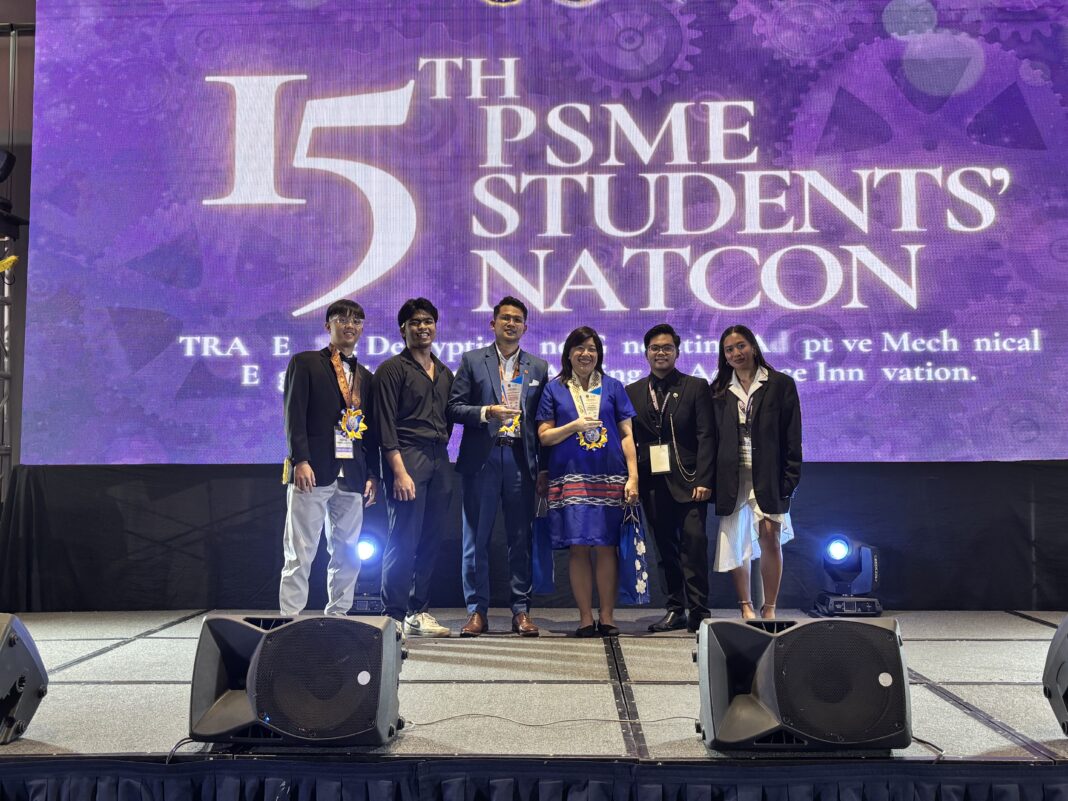Pasay City, Philippines – November 06, 2025 – Alpas Pinas, a non-stock, non-profit organization dedicated to promoting nuclear energy as a clean and sustainable source of power, urged the country’s future engineers to take part in powering the Philippines’ nuclear future during the 15th Philippine Society of Mechanical Engineers (PSME) Students’ National Conference.
Addressing hundreds of engineering students from across the country, Alpas Pinas Lead Convenor Gayle Certeza highlighted the vital role of nuclear education in preparing a new generation of Filipino engineers capable of leading the nation’s entry into the nuclear age.
“We may have run out of time to be afraid. We need nuclear now, and we need Filipino engineers ready to make it happen,” said Certeza.
Certeza began the session by debunking long-held myths about nuclear energy, explaining that modern technologies have made it one of the safest, cleanest, and most efficient power sources in the world. She emphasized that nuclear waste today is solid, securely contained, and well-managed, while advanced international safety standards ensure that nuclear facilities operate reliably and sustainably.
She also highlighted the growing momentum in the country’s energy policy, noting the recent passage of the Philippine Atomic Energy Regulatory Authority (PhilAtom) Bill, which establishes a comprehensive framework for the safe and peaceful use of nuclear technology.
“The passage of the PhilAtom Bill is a strong signal that the Philippines is serious about exploring nuclear power. But to make this vision a reality, we need people who understand the science and can make it happen,” Certeza said.
This call naturally led to a discussion on nuclear education and workforce readiness. Certeza emphasized the importance of collaboration between the academe and the nuclear industry to shape future engineering careers and build local expertise. She urged students to advocate for the inclusion of nuclear science and engineering programs in their universities, which is a crucial step toward developing a pool of experts who can help realize the country’s clean energy ambitions.
While the Philippines has yet to reintroduce a formal Nuclear Engineering program, Certeza noted that opportunities already exist for interested students. Organizations such as the Philippine Nuclear Research Institute (PNRI) and the Department of Energy (DOE) offer specialized training, certification, and even scholarship programs abroad for those who want to pursue studies in nuclear science.
She also encouraged students to take advantage of global learning opportunities, including free online courses from international institutions such as the Massachusetts Institute of Technology (MIT) and Harvard University, and to stay updated on local research initiatives led by PNRI and Alpas Pinas.
“Nuclear is experiencing a global renaissance and now is the best time for young Filipinos to catch that wave and be part of it,” she emphasized.
Certeza also pointed out that even without a nuclear-specific degree, engineering graduates can still build meaningful careers in the sector. As the country continues discussions on adopting nuclear energy, career opportunities are expected to grow for Filipino engineers who are ready to upskill, collaborate, and take part in this emerging field.
The session concluded on a hopeful note, as students expressed excitement about the career possibilities that nuclear energy presents.
“As future engineers, we understand that the energy decisions we make today will shape the world we live in tomorrow. Being part of this conversation allows us to contribute fresh ideas, new technologies, and a stronger commitment to sustainability. The youth have the creativity and courage to help steer the Philippines toward a cleaner, more energy-secure future,” said Paolo Zonio, PSME Student Natcon Chair.
“So future engineers, the future is yours. The world of nuclear is opening up, and your generation is right at the center of it. Pick up the ball and run with it. Let’s make nuclear a part of that future,” Certeza concluded.


